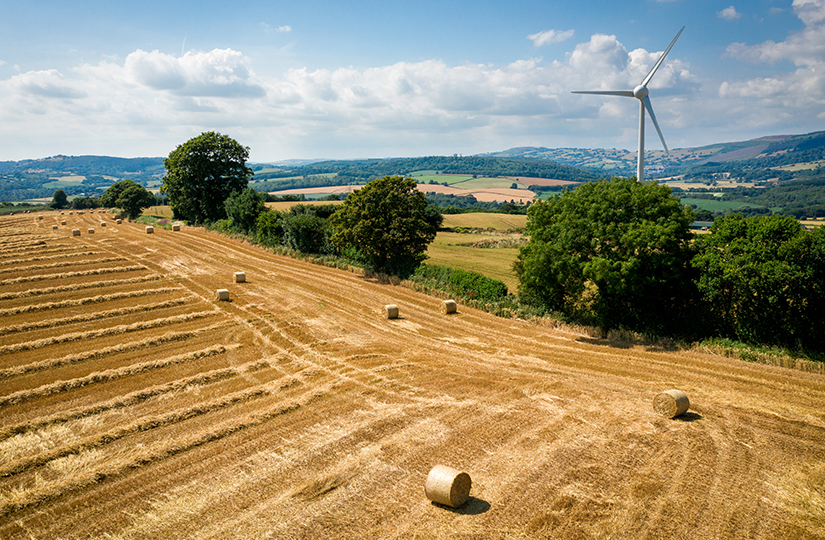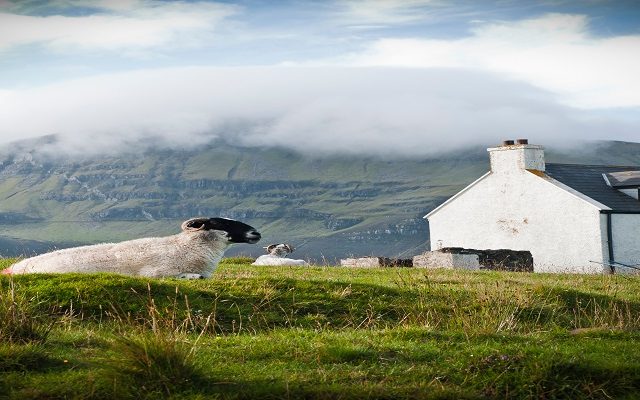Land Business Update Week: Commencing 26th July 2021
Welcome to our update on key land management, farming, planning and energy issues.
FARMING AND FOOD
National Food Strategy proposes significant changes
The Henry Dimbleby-led review, which has taken two years to produce, is a detailed, thought provoking and in some places radical vision for what the food and farming sector could be. Some of the main points and recommendations are:
- Its key premise is that it is impossible for Great Britain to become carbon neutral or reverse rising obesity rates without fundamental change in food and how it is produced.
- Fruit and vegetable consumption increasing by 30%.
- Meat intake should be cut by a third, so we eat more healthy diets but also to ensure that farming can become carbon neutral. The report argues that about half of the meat eaten in Britain is in the form of processed mince which could be replaced by alternative proteins, such as algae and those grown through fermentation. (A meat tax was not recommended as it would be politically unpalatable, so it recommends government investment and smart marketing of alternative proteins). NB @ 85% of Britain’s land is used for meat production.
- Free school meals available to more children, nutrition and cooking taught in schools and healthy start vouchers for families to buy vitamins, fruit and vegetables.
- Taxes on salt and sugar should be introduced to reduce obesity and national death rates. Although the headline rates look high (increases in the price of sugar to businesses of 500% and 1000% for sugar, it would add @ 0.5p to the cost of a packet of crisps and @ 9p to a Mars bar), it would raise @ £3.4bn a year to subsidise healthy food for poorer families.
- Up to a fifth of farmland should be turned over to woods and wildlife, with areas prioritised for specific objectives – such as areas chiefly for food production, another for nature and carbon sequestration, and another for low-intensity, nature-friendly farming.
- Clear environmental standards should be included in the government’s plans for post-Brexit trade deals.
Predictably, the plan has not been welcomed by all. The Food and Drink Federation, whose members would be affected by the sugar and salt taxes, said that the tax would never be used for healthy initiatives. The NFU supported the emphasis on eating natural, whole foods but urged a clear distinction between grass-fed British meat and cheap imports. And the Green Alliance, which is a group of environmental organisations, welcomed the report as it showed that we can ‘have it all’ – healthy food, as well as restored nature, carbon sinks and sustainable farm businesses; they did not use the ‘have your cake and eat it’ idiom. The government has said it will respond within six months.
Health and climate consequences of the American food system
An interesting mirror to the National Food Strategy is a report by the Rockefeller Foundation, which has estimated that the impacts of the food system in America – including health care costs, climate change and biodiversity loss – are about three times the amount of the $1.1 trillion spent on food a year. The report used 14 metrics to quantify what it calls the true cost of food. It says that the externalised costs are being incurred by the public sector, businesses and producers, consumers and future generations. Responding to the report, the World Wildlife Fund said that they would like to see more metrics and tools to assess how much carbon a farmer is returning to the soil. So the challenges and issues are the same across the pond.
ENVIRONMENT
Lidl going carbon neutral by 2022
The supermarket intends to reduce its operating emissions by 80% compared with 2019 levels by putting solar panels on stores, investing in low carbon refrigeration and lighting and electric vehicles. Suppliers will be asked to set and comply with targets by 2026. It will also sell the first carbon neutral cheddar, made by Wyke Farms in Somerset. Wkye makes its cheeses with renewable electricity and gas (with waste going into their AD plant, so a ‘more circular system’) and they also benchmark their farming emissions. They say that their dairy carbon footprint is much lower than in other countries. In an interesting interview on Farming Today, their managing director said that he felt that carbon taxes would slow industry progress to carbon neutrality and that benchmarking and working with processors were more likely to lead to cuts in emissions.
Fit for 55 EU climate proposals
The European Commission has published its ‘Fit for 55’ package, which refers to the aim of reducing net greenhouse gas emissions 55% by 2030 from 1990 levels. It is a suite of proposals – many existing but revised, such as the EU Emission Trading System (ETS) and some new – but now brought together in a more coherent way and with a commitment to make Europe the world’s first climate neutral continent by 2050. A key element is the proposal to establish a Carbon Border Adjustment Mechanism (known as CBAM). Under it, a charge will be levied when certain goods enter the EU based on the greenhouse gas emissions embedded in them and emitted during their production. The charge will be applied, initially, to a small number of products, including cement, metals and electricity. Its significance to farming is that it will also apply to fertilisers as they have high carbon emissions. CBAM’s aim is to create a more level playing field between organisations in Europe and firms elsewhere, which may be subject to more lax environmental requirements. The EU wants the CBAM to be fully operational in 2026 but it will be challenging to get this agreed with bodies like the WTO, which will examine whether it is an unfair barrier to trade. It is highly ambitious and is felt by many economists to be a key tool reducing emissions – as emissions are more likely to be cut if they are included in the price of goods.
Natural Environment Investment Readiness Fund
The government has announced the first tranche of projects in England that it has funded to increase private investment in nature and tackle climate change. They include projects to create new woodland, deliver natural flood risk management, improve water quality and restore kelp forests. The aim of the funding is to pay for the development of the projects to the point where they can provide a return on investment, for example through the sale of carbon and biodiversity units or reduced water treatment costs. There are projects in most regions and it is well worth checking the list for projects you could follow near you.
ECONOMY AND PROPERTY
What’s next for offices
This new magazine distils experience and expertise from a range of occupiers, investors and facilities managers into a guide to reopening and reconfiguring offices. The examples apply to both urban and rural offices.
What are entrepreneurs investing in?
This report from BNP’s Wealth Management division looks at the investment decisions of entrepreneurs from around the world, some of whom live in or invest in the UK. One section considers why people invest in property. For investors based in Europe, diversification in their investments was the most common reason, followed by being able to pass the asset to the next generation and also property being perceived as lower risk. These reasons closely mirror the motivations of buyers of farmland in the UK. The report also has a section on what areas the entrepreneurs are considering for future investments – they include smart technology and energy transition. The report is available to download here.
T-Level reforms in England
The government has announced plans to restructure the 16-plus education sector in an effort to boost take-up of vocational qualifications, including in farming and land management. While the principle may be right, the leaders of education bodies have said that the changes are happening too fast, with not enough planning or forewarning so tens of thousands of students will be unable to continue training; many students will not have the higher grades that will be required in maths and English and many colleges will not be able to ensure that students get 45 days of impactful work experience, which has been made harder by the COVID-19 pandemic. The government’s aim is to introduce the changes from 2023.






